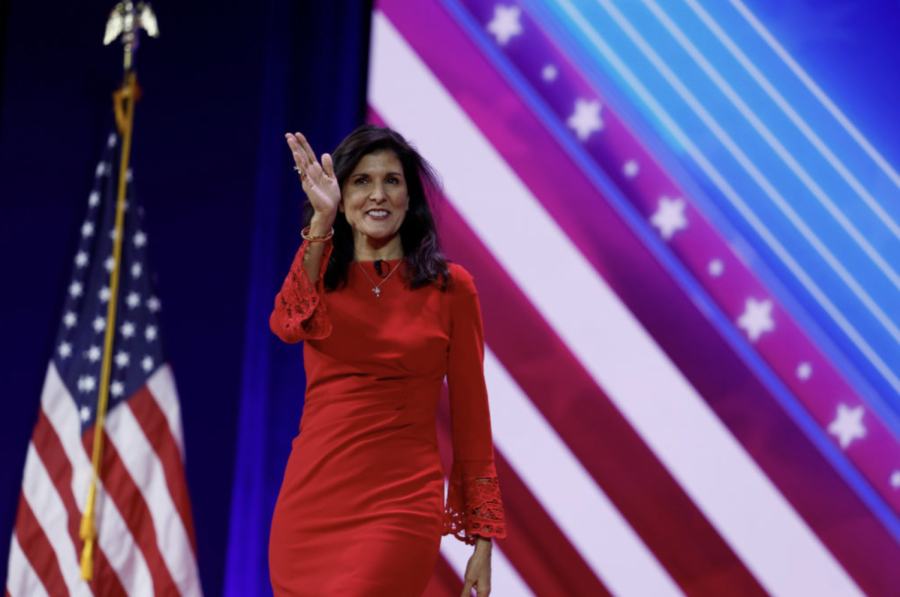Fordham Weighs in on Presidential Candidate
Nikki Haley, former South Carolina governor and United Nations ambassador for the Trump administration, announced her candidacy for president on Tuesday, Feb. 14. In her half hour speech, Haley discussed ongoing foreign policy issues such as the war in Ukraine and recent national security issues like the Chinese spy balloon found earlier in February. While Haley never mentioned former President (and de facto leader of one wing of the Republican Party) Donald Trump by name, she did say that it was time for Republicans to leave “faded names” and “stale ideas” in the past.
Haley, the “proud daughter of Indian immigrants,” grew up in South Carolina and served as a representative in the South Carolina House of Representatives from 2005-11 and as governor of the state from 2011-17. She was ambassador to the Trump administration for two years in 2017 and 2018.
She is the second person, after Trump, to announce she is running for the GOP nomination in the 2024 presidential race, and is the first woman to enter the 2024 race.
There were a number of Democratic female candidates that gained national attention in the 2020 election — Kamala Harris, Elizabeth Warren, Amy Klobuchar — but there were no female Republicans that officially announced a bid for the presidency.
There was only one Republican woman in the 2012 and 2016 presidential elections, and no Republican women ran in 2020.
Women running for office face a double-bind: they need to show that they are capable leaders and also come off as likable enough. So far, Haley has painted herself as a strong candidate while also leaning into her femininity.
She stated in her candidacy announcement that America needs a “tough-as-nails woman” in the White House, testing Republican voters’ attitude around female candidates. A female Republican candidate has never won a state Republican primary, and female Republican candidates in all races often face a harder battle than female Democratic candidates. Many Republican voters want women to be traditionally feminine, but want their politicians to be strong, creating a situation in which it is even harder for Republican women to get elected.
While 59% of Americans believe that there are too few women in positions of power in politics and business, only 52% believe that there will someday be gender equality in these positions of power.
Along with the double-bind, a major obstacle that women running for president face is the idea among voters that while they themselves would vote for a woman, America is not ready for a female president, and a female candidate would lose the general election.
Dakota Calcaterra, FCRH ’26, the freshman liaison for the Fordham College Republicans, said that he believes a female politician could win the GOP presidential nomination in the near future, but that it likely would not be Haley.
“I think that, unfortunately, her vision of the party is a few years out of date,” said Calcaterra. “I think that Haley will have a hard time trying to define herself outside of being a woman,” Calcaterra said, because he believes that Trump and Florida Gov. Ron DeSantis are going to be the two Republican candidates that define this election.
Luke Irvine, FCRH ’26, a freshman studying political science, felt similarly with Calcaterra about Haley’s prospects. He said he believes that Haley “is the right candidate for the 2016 election,” but agrees with Calcaterra that the “GOP has really evolved since that election.” Irvine said that he did think that America would elect a female president in the near future, but that he “would be surprised if the first female president is a Republican,” because of many Republican voters’ views on both traditional femininity.
Monika McDermott, a political science professor at Fordham, recently wrote a book examining how masculinity and femininity affect voter behavior and voters’ views of candidates.
When asked if she believed a female president was in the near future, McDermott said that the biggest challenge to having a female president would be finding the right candidate. She cited Hillary Clinton as a female candidate who was palatable enough to voters to win the popular vote.
She expanded, explaining that “in some ways a woman as the Republican nominee would have a crossover appeal that could be really advantageous in the general election. Democrats and independents could, conceivably, view a female candidate as less threatening as a Republican (meaning less of a far-right conservative) than a male in the same position.”
While some view Haley’s lack of a clear stance on Trump as a weakness, McDermott said she believes that this actually acts to Haley’s advantage.
McDermott said that Haley has not yet alienated herself from Trump supporters, but that she has “made some clear distinctions between herself and Trump,” which could lead to her having support from both wings of the Republican Party in the primary.








































































































































































































